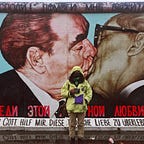The Motorcycle Diaries(review)—pre-emptive portrayal of Che Guevara
(Source: wiki)
The Motorcycle Diaries (Spanish: Diarios de motocicleta) is a 2004 biopic about the journey and written memoir of the 23-year-old Ernesto Guevara, who would several years later become internationally known as the iconic Marxist guerrilla leader and revolutionary Che Guevara. The film recounts the 1952 expedition, initially by motorcycle, across South America by Guevara and his friend Alberto Granado. As well as being a road movie, the film is a coming-of-age film; as the adventure, initially centered on youthful hedonism, unfolds, Guevara discovers himself transformed by his observations on the life of the impoverished indigenous peasantry. Through the characters they encounter on their continental trek, Guevara and Granado witness first hand the injustices that the destitute face and are exposed to people and social classes they would have never encountered otherwise. To their surprise, the road presents to them both a genuine and captivating picture of Latin American identity. As a result, the trip also plants the initial seed of cognitive dissonance and radicalization within Guevara, who would later view armed revolution as a way to challenge the continent’s endemic economic inequalities and political repression.
I have indeed watched Motorcycle Diaries back home with the class when I was in secondary school; it was a hit in Taiwan back then, yet Southern America seemed so distant to us, Che Guevara was no one but a cool legend in our young hearts, at most the symbol of rebel and liberation. The teachers and rudimental critic reviews mostly emphasized the inspiring aspect of traveling wide and far to broaden our horizons, as well as that the young should set high ideals, therefore the focus of the movie has not be of any historic value to me until today.
Motorcycle Diaries rolled out like a well-cut documentary, and I believe it was meant to bring out that vibe too — simply the ever-changing scenic views and multi-faceted cultural aspects do not make it boring to sit through the film at all, adding in the various incidents Ernesto and Alberto encountered that build up and mould their characters gradually, the film is not only visually-appealing but also filled with content.
However, I do not think Motorcycle Diaries should be viewed as an accurate representation of all the political belief and actions Che Guevara had ever advocated, it is instead at most a pre-emptive portrayal of his young adult phase based on his own description. The film gives us another insight into his life, showing us Ernesto was at once another youth who held high ideals and felt angry at how the world was not giving everyone a fair chance; the difference between him and other youths around our age is that Che Guevara chose another path to make his belief come true, but however how legitimate his motive is, not all his following actions justify it.
I feel like I am not that familiar with the history of South America to comment on the more political side of Che Guevara, and this film merely let me know how he was awaken from his more materially comfortable life, opened his eyes to the poorer and unjust side of the society, but did not go as far as discussed his later actions — and I think this is a wise division.
